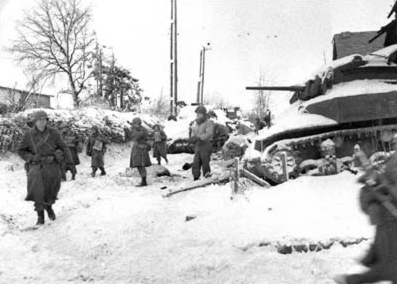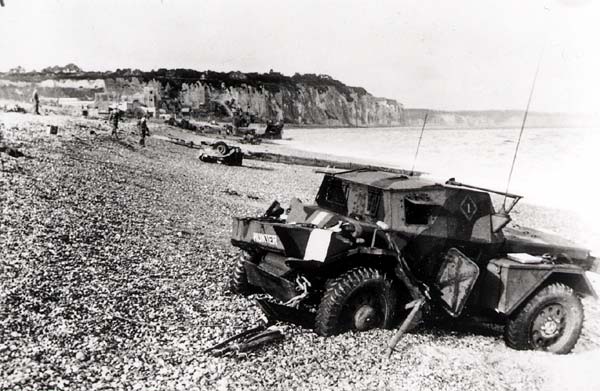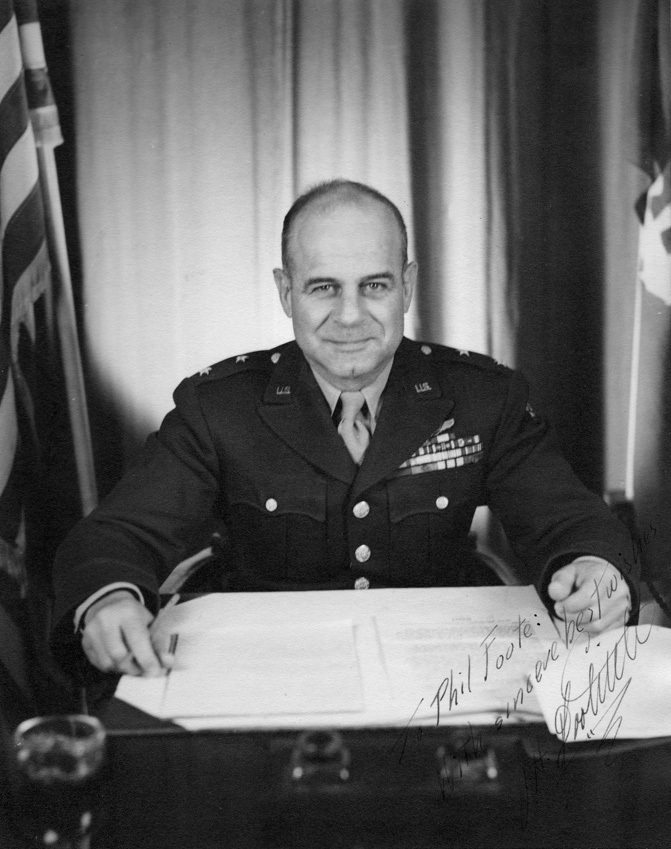|
Jagdgeschwader 27
''Jagdgeschwader'' 27 (JG 27) "''Afrika''" was a fighter wing of the Luftwaffe during World War II. The wing was given the name "Africa" for serving in the North African Campaign predominantly alone in the period from April 1941 to September 1942. Elements of JG 27 fought in every major theatre of operations in which the Wehrmacht operated. Stab JG 27 was created in October 1939 and assigned two ''gruppen'' (groups) in the Phoney War. The wing's first campaign was Fall Gelb, the battles of the Low Countries and France. In the second half of 1940 JG 27 received a third ''gruppe'' and fought in the Battle of Britain. In 1941 it returned to Germany then fought in the German invasion of Yugoslavia and Battle of Greece in April 1941. The wing was then separated with two ''gruppen'' sent to support Operation Barbarossa, the invasion of the Soviet Union in June 1941. I. ''Gruppe'' was sent to Italian Libya beginning JG 27s North African Campaign from mid-A ... [...More Info...] [...Related Items...] OR: [Wikipedia] [Google] [Baidu] |
Fighter Aircraft
Fighter aircraft are fixed-wing aircraft, fixed-wing military aircraft designed primarily for air-to-air combat. In military conflict, the role of fighter aircraft is to establish air supremacy, air superiority of the battlespace. Domination of the airspace above a battlefield permits bombers and attack aircraft to engage in tactical bombing, tactical and strategic bombing of enemy targets. The key performance features of a fighter include not only its firepower but also its high speed and maneuverability relative to the target aircraft. The success or failure of a combatant's efforts to gain air superiority hinges on several factors including the skill of its pilots, the tactical soundness of its doctrine for deploying its fighters, and the numbers and performance of those fighters. Many modern fighter aircraft also have secondary capabilities such as ground-attack aircraft, ground attack and some types, such as fighter-bombers, are designed from the outset for dual roles. ... [...More Info...] [...Related Items...] OR: [Wikipedia] [Google] [Baidu] |
Battle Of Greece
The German invasion of Greece, also known as the Battle of Greece or Operation Marita ( de , Unternehmen Marita, links = no), was the attack of Kingdom of Greece, Greece by Fascist Italy (1922–1943), Italy and Nazi Germany, Germany during World War II. The Italian invasion in October 1940, which is usually known as the Greco-Italian War, was followed by the German invasion in April 1941. Battle of Crete, German landings on the island of Crete (May 1941) came after Allied forces had been defeated in mainland Greece. These battles were part of the greater Balkans campaign (World War II), Balkans Campaign of the Axis powers and their associates. Following the Italian invasion on 28 October 1940, Greece, with British air and material support, repelled the initial Italian attack and a counter-attack in March 1941. When the German invasion, known as Operation Marita, began on 6 April, the bulk of the Hellenic army, Greek Army was on the Greek border with Albania under Italy, Albani ... [...More Info...] [...Related Items...] OR: [Wikipedia] [Google] [Baidu] |
Austria
Austria, , bar, Östareich officially the Republic of Austria, is a country in the southern part of Central Europe, lying in the Eastern Alps. It is a federation of nine states, one of which is the capital, Vienna, the most populous city and state. A landlocked country, Austria is bordered by Germany to the northwest, the Czech Republic to the north, Slovakia to the northeast, Hungary to the east, Slovenia and Italy to the south, and Switzerland and Liechtenstein to the west. The country occupies an area of and has a population of 9 million. Austria emerged from the remnants of the Eastern and Hungarian March at the end of the first millennium. Originally a margraviate of Bavaria, it developed into a duchy of the Holy Roman Empire in 1156 and was later made an archduchy in 1453. In the 16th century, Vienna began serving as the empire's administrative capital and Austria thus became the heartland of the Habsburg monarchy. After the dissolution of th ... [...More Info...] [...Related Items...] OR: [Wikipedia] [Google] [Baidu] |
Operation Bodenplatte
Operation Bodenplatte (; "Baseplate"), launched on 1 January 1945, was an attempt by the Luftwaffe to cripple Allied air forces in the Low Countries during the Second World War. The goal of ''Bodenplatte'' was to gain air superiority during the stagnant stage of the Battle of the Bulge so that the German Army and Waffen-SS forces could resume their advance. The operation was planned for 16 December 1944, but was delayed repeatedly due to bad weather until New Year's Day, the first day that happened to be suitable. Secrecy for the operation was so tight that not all German ground and naval forces had been informed of the operation and some units suffered casualties from friendly fire. British signals intelligence recorded the movement and buildup of German air forces in the region, but did not realise that an operation was imminent. The operation achieved some surprise and tactical success, but was ultimately a failure. A great many Allied aircraft were destroyed on the ground ... [...More Info...] [...Related Items...] OR: [Wikipedia] [Google] [Baidu] |
Ardennes Offensive
The Battle of the Bulge, also known as the Ardennes Offensive, was the last major German offensive campaign on the Western Front during World War II. The battle lasted from 16 December 1944 to 28 January 1945, towards the end of the war in Europe. It was launched through the densely forested Ardennes region between Belgium and Luxembourg. The primary military objectives were to deny further use of the Belgian port of Antwerp to the Allies and to split the Allied lines, which potentially could have allowed the Germans to encircle and destroy the four Allied forces. Nazi dictator Adolf Hitler, who since December 1941 had assumed direct command of the German army, believed that achieving these objectives would compel the Western Allies to accept a peace treaty in the Axis powers' favor. By this time, it was palpable to virtually the entire German leadership including Hitler himself that they had no realistic hope of repelling the imminent Soviet invasion of Germany unless t ... [...More Info...] [...Related Items...] OR: [Wikipedia] [Google] [Baidu] |
Normandy Landings
The Normandy landings were the landing operations and associated airborne operations on Tuesday, 6 June 1944 of the Allied invasion of Normandy in Operation Overlord during World War II. Codenamed Operation Neptune and often referred to as D-Day, it was the largest seaborne invasion in history. The operation began the liberation of France (and later western Europe) and laid the foundations of the Allied victory on the Western Front. Planning for the operation began in 1943. In the months leading up to the invasion, the Allies conducted a substantial military deception, codenamed Operation Bodyguard, to mislead the Germans as to the date and location of the main Allied landings. The weather on D-Day was far from ideal, and the operation had to be delayed 24 hours; a further postponement would have meant a delay of at least two weeks, as the invasion planners had requirements for the phase of the moon, the tides, and the time of day that meant only a few days each month w ... [...More Info...] [...Related Items...] OR: [Wikipedia] [Google] [Baidu] |
Greece
Greece,, or , romanized: ', officially the Hellenic Republic, is a country in Southeast Europe. It is situated on the southern tip of the Balkans, and is located at the crossroads of Europe, Asia, and Africa. Greece shares land borders with Albania to the northwest, North Macedonia and Bulgaria to the north, and Turkey to the northeast. The Aegean Sea lies to the east of the mainland, the Ionian Sea to the west, and the Sea of Crete and the Mediterranean Sea to the south. Greece has the longest coastline on the Mediterranean Basin, featuring thousands of islands. The country consists of nine traditional geographic regions, and has a population of approximately 10.4 million. Athens is the nation's capital and largest city, followed by Thessaloniki and Patras. Greece is considered the cradle of Western civilization, being the birthplace of democracy, Western philosophy, Western literature, historiography, political science, major scientific and mathematical p ... [...More Info...] [...Related Items...] OR: [Wikipedia] [Google] [Baidu] |
Yugoslavia
Yugoslavia (; sh-Latn-Cyrl, separator=" / ", Jugoslavija, Југославија ; sl, Jugoslavija ; mk, Југославија ;; rup, Iugoslavia; hu, Jugoszlávia; rue, label= Pannonian Rusyn, Югославия, translit=Juhoslavija; sk, Juhoslávia; ro, Iugoslavia; cs, Jugoslávie; it, Iugoslavia; tr, Yugoslavya; bg, Югославия, Yugoslaviya ) was a country in Southeast Europe and Central Europe for most of the 20th century. It came into existence after World War I in 1918 under the name of the '' Kingdom of Serbs, Croats and Slovenes'' by the merger of the provisional State of Slovenes, Croats and Serbs (which was formed from territories of the former Austria-Hungary) with the Kingdom of Serbia, and constituted the first union of the South Slavic people as a sovereign state, following centuries in which the region had been part of the Ottoman Empire and Austria-Hungary. Peter I of Serbia was its first sovereign. The kingdom gained international ... [...More Info...] [...Related Items...] OR: [Wikipedia] [Google] [Baidu] |
Western Front (World War II)
The Western Front was a European theatre of World War II, military theatre of World War II encompassing Denmark, Norway, Luxembourg, Belgium, Netherlands, the Netherlands, the United Kingdom, France, and Germany. The Italian campaign (World War II), Italian front is considered a separate but related theater. The Western Front's 1944-1945 phase was officially deemed the European Theater of Operations, United States Army, European Theater by the United States, whereas Italy fell under the Mediterranean Theater of Operations, United States Army, Mediterranean Theater along with North Africa. The Western Front was marked by two phases of large-scale combat operations. The first phase saw the capitulation of Luxembourg, Netherlands, Belgium, and France during May and June 1940 after their defeat in the Low Countries and the northern half of France, and continued into an air war between Germany and Britain that climaxed with the Battle of Britain. The second phase consisted of large- ... [...More Info...] [...Related Items...] OR: [Wikipedia] [Google] [Baidu] |
Defence Of The Reich
The Defence of the Reich (german: Reichsverteidigung) is the name given to the military strategy, strategic defensive aerial campaign fought by the Luftwaffe of Nazi Germany over German-occupied Europe and Germany during World War II. Its aim was to prevent the destruction of German civilians, military and civil industries by the Allies of World War II, Western Allies. The day and night air battles over Germany during the war involved thousands of aircraft, units and aerial engagements to counter the Allied strategic bombing campaign. The campaign was one of the longest in the history of aerial warfare and with the Battle of the Atlantic and the Allied Blockade of Germany (1939–45), Blockade of Germany was the longest of the war. The Luftwaffe fighter force defended the airspace of German-occupied territory against attack, first by RAF Bomber Command and then against the United States Army Air Forces (USAAF) in the Combined Bomber Offensive. In the early years, the Luftwaffe w ... [...More Info...] [...Related Items...] OR: [Wikipedia] [Google] [Baidu] |
Siege Of Malta (World War II)
The siege of Malta in World War II was a military campaign in the Mediterranean and Middle East theatre of World War II, Mediterranean Theatre. From June 1940 to November 1942, the fight for the control of the strategically important island of the British Empire, British Crown Colony of Malta pitted the air and naval forces of Kingdom of Italy, Fascist Italy and Nazi Germany against the Royal Air Force (RAF) and the Royal Navy. The opening of a North African Campaign, new front in North Africa in June 1940 increased Malta's already considerable value. British air and sea forces based on the island could attack Axis powers, Axis ships transporting vital supplies and reinforcements from Europe; Churchill called the island an "unsinkable aircraft carrier". General Erwin Rommel, de facto field command of Axis forces in North Africa, recognised its importance quickly. In May 1941, he warned that "Without Malta the Axis will end by losing control of North Africa". The Axis resolved ... [...More Info...] [...Related Items...] OR: [Wikipedia] [Google] [Baidu] |
Battle Of The Mediterranean
The Battle of the Mediterranean was the name given to the naval campaign fought in the Mediterranean Sea during World War II, from 10 June 1940 to 2 May 1945. For the most part, the campaign was fought between the Italian Royal Navy ('' Regia Marina''), supported by other Axis naval and air forces, and the British Royal Navy, supported by other Allied naval forces, such as Australia, the Netherlands, Poland and Greece. American naval and air units joined the Allied side in 1942. Each side had three overall objectives in this battle. The first was to attack the supply lines of the other side. The second was to keep open the supply lines to their own armies in North Africa. The third was to destroy the ability of the opposing navy to wage war at sea. Outside of the Pacific theatre, the Mediterranean saw the largest conventional naval warfare actions during the conflict. In particular, Allied forces struggled to supply and retain the key naval and air base of Malta. ... [...More Info...] [...Related Items...] OR: [Wikipedia] [Google] [Baidu] |





_starboard_bow_view.jpg)